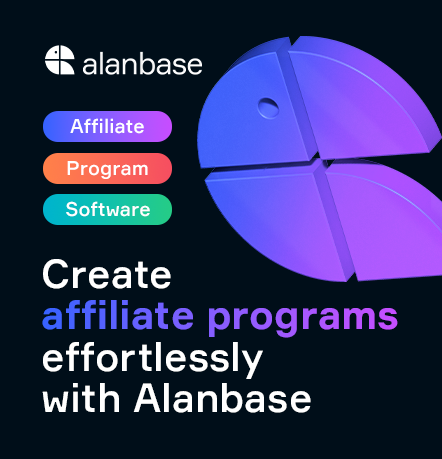

by Editor
📍What are the main tools SEO experts use in their work?
📍A lot of traffic ≠ a lot of money?
📍Which queries are the most profitable in iGaming?
📍Is it true that Google calls ALL the shots?
📍How much investment is required for 1-2 iGaming sites?
We talked about this and more in the 1st episode of TRUE PODCAST. Guest of the video - Galina Bakusheva🔥
This is a new segment on our YouTube channel, where Dania Fokin will meet with representatives of the iGaming industry to discuss topics that others don't cover in their podcasts. Only juicy, top-tier content!
In this episode, the author of the channel "SEOshnitsa" and owner of two SEO teams shared with the CEO of Valor.Partners how she promotes iGaming sites and what strategies she uses in her work!
There is also a giveaway for a one-hour SEO consultation with Galya inside the video, so CLICK HERE and check out the conditions!
Danya: So, back around ninth grade, I got interested in making money online. I once wrote about it, actually. Well, my three Instagram followers saw that I, so to speak, went through all the stages of being an online bum. That’s pretty much my story. I found out that there's an opportunity to sell website links, which is this topic. And, well, skipping ahead a bit, I had three websites. I wrote articles for them, bought a WordPress template; the sites were about fishing, computers, and construction. Because I analyzed the niches back then and saw that there were profitable niches, and they would buy links. So, I promoted all this using low-frequency keywords and sold links on the sites, priced at 50 cents - a dollar. That's what I did. Then one of my sites about computers took off. It was all rewriting, I just rewrote and made it unique. Of course, I came up with stuff myself. My earnings were based on selling links through SAPE, and one site, back then there was this citation index in Yandex. The higher this metric, the more authoritative you were. Yes, sites were selected based on TIC. And so these links were more expensive. I got really inspired by all this. I’m telling you this just to start our discussion. That was my mini-SEO life. My links' prices went up, I was selling, selling. Then I started university, and I dropped everything else. Then someone wanted to buy that site for 200 or 300 dollars. I bargained, thinking it was worth much more. Then the domain just expired, and he simply bought it. That was my SEO story. Now, of course, I don't really keep up with all that, I'm more into product stuff and so on. But as a traffic source, I still have some basic knowledge. So there are many deep SEO topics I’d like to discuss. And in general, for all the viewers watching, let's explain in simple terms - SEO is?
Galya: It’s a specialist who promotes websites in search engine results by targeting specific key queries, meaning the queries users directly search for through the search engine. The task of this specialist is to boost their websites in the rankings by using external links and creating great content, thus capturing that traffic.
Danya: Yes, but there's a search engine that everyone uses, as we know. We're just clarifying this so that if someone from another field, like construction, joins, they understand what we're doing. Okay, just tell us what's happening with you right now, where your main traffic is concentrated, in which GEOs, and then we'll go from there.
Galya: Over the past year, just about a year this July, I've built my own team. I actually talked about this at MAC, how I built it, where I got my resources from, and so on. I don't know what came over me, but I decided to start right away with high-quality GEOs. TIER-1, yes. These are the fat GEOs that you can buy. Because essentially, you create a site, and you can create it for any GEO. The question isn't about that. I based my decisions on something else — where the deals are and where you can earn more with less investment in work. That means where you need less traffic, but that traffic will be valuable. For example, in TIER-1, we don't need a million clicks a day. I just need 300-1000 clicks a day on targeted queries to earn a decent amount and a normal number of deposits. You don't even need a lot of deposits there. But it's organic, in short. It's just a matter of competition. If we're talking TIER-3, the pay is less there. So, when in TIER-3, the pay is 30-50 bucks, maybe up to 70. In TIER-1, you get 200-250. There's even 350.
Danya: Great. But there, within TIER-1, the competition is more...
Galya: I thought so too. So, it's like a challenge, right? Well, like... My team is like 3 months old, we started just 2 months ago, I taught the guys from scratch, they can’t do much, and we jumped straight into TIER-1. But I had this intuitive feeling, well, it actually turned out that way, that in TIER-1, other teams would be competing with me.
Danya: Foreign teams?
Galya: Yes, foreign ones. Not ours. And because they are less... Well, I don't want to say... No, I don't want to diminish their professional qualities in any way. But they have different methods. And I thought that... I had experience working in the CIS even before this. And I thought that... I thought that this experience could be transferred to TIER-1. It's such a hardcore approach. It's a really cool method. And not many people use this method in TIER-1. But it's not popular. And I took it and did it.
Danya: Alright, good. Methodology. Look, just jumping ahead... Since we've touched on this, in my mind, as an SEO specialist, I'll immediately imagine myself as a super pro in SEO.
I analyze search results simply through tools. Ahrefs, for example. I look at who occupies which positions. I see where they source their links. Well, first of all, I check these resources. I examine their structure, see what kind of content is there, how it's built accordingly. I look at the inbound links to these sites. I roughly estimate the value of these inbound links and find similar sites, that is, inbound links. If we have a site, we need to supply it with a flow of inbound links so that in the eyes of the search engine, we appear top-notch.
Galya: Well, like PR. I always use people as an example. For instance, when you meet someone, if you already have the trust of other people that this person knows, then you approach them differently from the start. Like, this is a trustworthy guy, everyone knows him, people talk about him. I've heard about him from cool people. It's the same thing with a website. Google says a site is good if it's linked to by many other trusted sites in Google.
Danya: We're essentially explaining the basics here, just to have this information in case. Okay, I've analyzed the inbound flows, the incoming links to them, understood where they are being purchased, found roughly similar platforms, or even possibly on the same platforms, perhaps something is already covered. And I've started gradually filling with content. I also observe how they do it and essentially just make it unique, adopting this same experience and starting similarly. I'm just leading up to why all this matters. What could be initially more, as you say, hardcore that could differentiate my maybe superficial view, but what could be there so extraordinary, I don't know, that would distinguish you from those guys who simply target western countries based on the mechanics I've described. Well, actually, when you know the ranking factors... But you understand, there are... There are so many of them, not... 200, 300, 500, I don't know, possibly a thousand; behavioral, and in terms of images, links, articles, anchors, non-anchors. Overall site structure, code, domain placement…
Galya: Yeah, Danya, that's why... I mean, I'm not just forming a team when I already have experience. Well yes, there's no arguing with that. Yeah, you probably won’t make it if you’re just an SEO specialist who's never worked in iGaming, and in general in the foreign countries, in Google. You can't just log into Ahrefs, type in a bunch of sites, and say, "Whoa, they are using some kinda super technology. Ah, I know a secret now". It doesn't work like that. Experience comes with time anyway. You see the dynamics on your own sites from specific work and manipulations, and you draw conclusions. Okay. You need to have a lot of sites.
Danya: Yeah, okay. Sampling, right. So, my conclusion right now is this, and you’ll correct me if something. The action I described earlier may work or may not work. But overall, the best story is your own experience and a huge number of websites where you apply various actions. Maybe you change the layout, maybe the content, maybe the format; maybe you have a single-page site, then you add more content, interlink with other externals. In short, you take specific actions, track everything on your sites, and only through such experience can you really build a solid network of SEO sites that make money.
Galya: Yes, that's why there are no SEO specialists in arbitrage. I could also sit there, close myself in my cell and say, that I'm an SEO, don't touch me. Don't call me an arbitrageur. Yes, don't call me that. I fully agree with Strizh, actually. Well, of course, that's how it is. That's how it is. I also want to promote SEO, not arbitrage. However, lately, I'm increasingly coming to the conclusion that SEO is just the same…
Danya: Okay. So you wanted to say SEO is the same as arbitrage?
Galya: Yes.
Danya: Alright, how did you come to that conclusion?
Galya: It's because there are combinations, and you're constantly testing, it's the same thing.
Danya: No, look, it's a procurement process. Traffic arbitrage is about procurement. You buy for a dollar, sell for two. Yes. And there's the concept of ROI there. In the case of SEO, the concept of ROI cannot really exist because your revenue part extends over such a long cycle, especially within the scope of revshare.
Galya: Yes, that's the point. Yes, there's revshare, it can always bring something in. But the sites I launch, at least, they're not eternal. That's the conclusion I've come to. So you work, well, even if you're working in TIER-1, they think you’re being suffocated in some kind of a framework by hypothetically like Roskomnadzor. It exists. It's not just in Russia. Well, not Roskomnadzor, but there's a regulator. Well, a tool that regulates. So, again, it's experience. Until I encountered this, I thought I’d launch a bunch of sites now, and they would all grow slowly. Because I do certain manipulations, SEO work. No, but there are competitors there, and competitors use different tactics. They can just bombard you with crappy links. They can file complaints, they can do anything. So we forget that it's a market and it's competitive.
Danya: Yes, we'll sort it out now. I just want to emphasize this idea that SEO is like arbitrage. So just let me understand, in what sense? You're not buying anything from an external source there.
Galya: I don't buy anything from an external source, but Google, as my source, it gives me a certain capacity. It gives me final capacity, final traffic. You understand? But it's free. So you've just done a series of procedures, yes, you've spent on them. Yes, I still spent money on buying links for the content.
Danya: Okay, but if we elaborate on this…
Galya: Well, ROI still exists anyway. Return on investment. So I invest in the site, it brings in returns, then it stops bringing in returns. And I think, how much did I actually earn from it in the end? Because from my experience, websites are not eternal. It's usually like that. Yes, okay. I'm talking about the methods I use.
Danya: Yes, I understand. But since we've brought up this topic of promotion, by the way, you mentioned ranking factors. Here's how I see Google's ranking factors for myself. I imagine, okay, it's the text itself, its... You know, there used to be this thing, keyword density on... Well, on a certain number of characters.
Galya: Per thousand characters.
Danya: But I don't remember why anymore, but even back in ninth grade, I realized it was some serious business. But let's say, maybe not. Maybe I was wrong. So, the text, articles, keywords within the article, the site, code cleanliness, images, maybe there are also tags within the image. The uniqueness of the image specifically. What else is there? Let's think. Well, again, active call-to-action buttons, so that it quickly receives...
Galya: And you didn't mention one important thing...
Watch the full podcast version HERE and participate in a giveaway for an hour-long SEO consultation with Galya Bakusheva!

by Editor



comments ....(0)
Leave a comment
You must be in to leave a comment